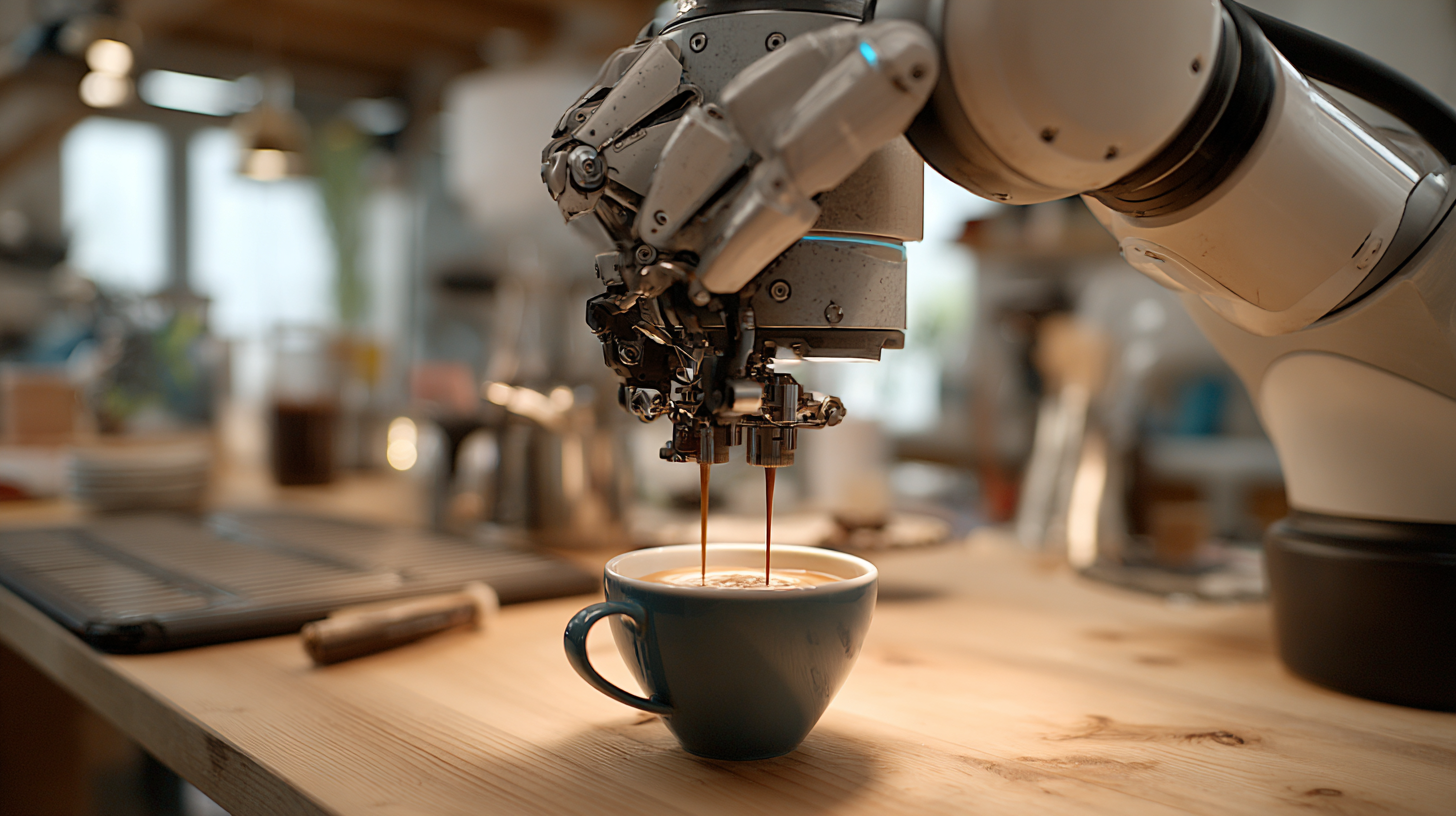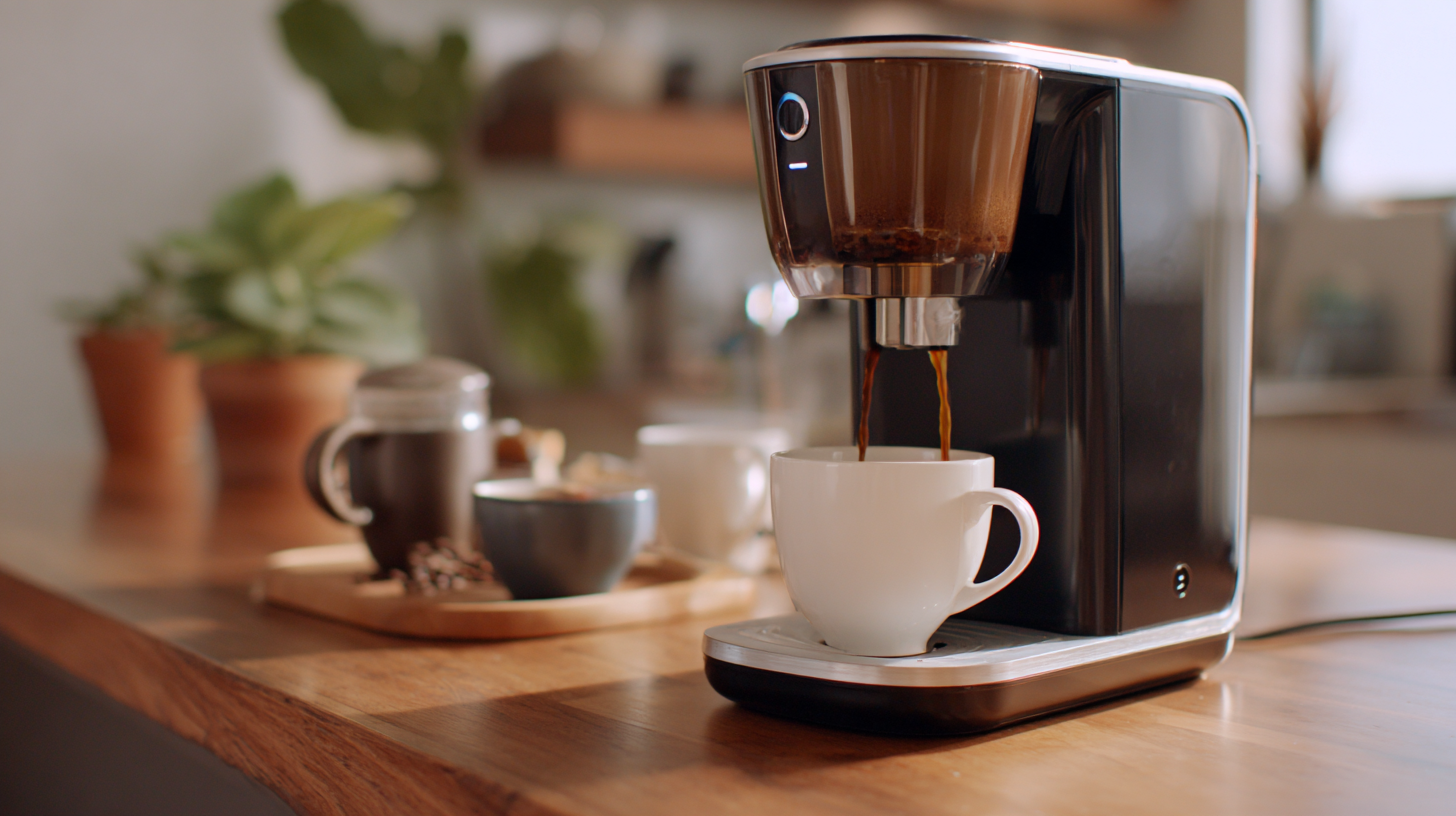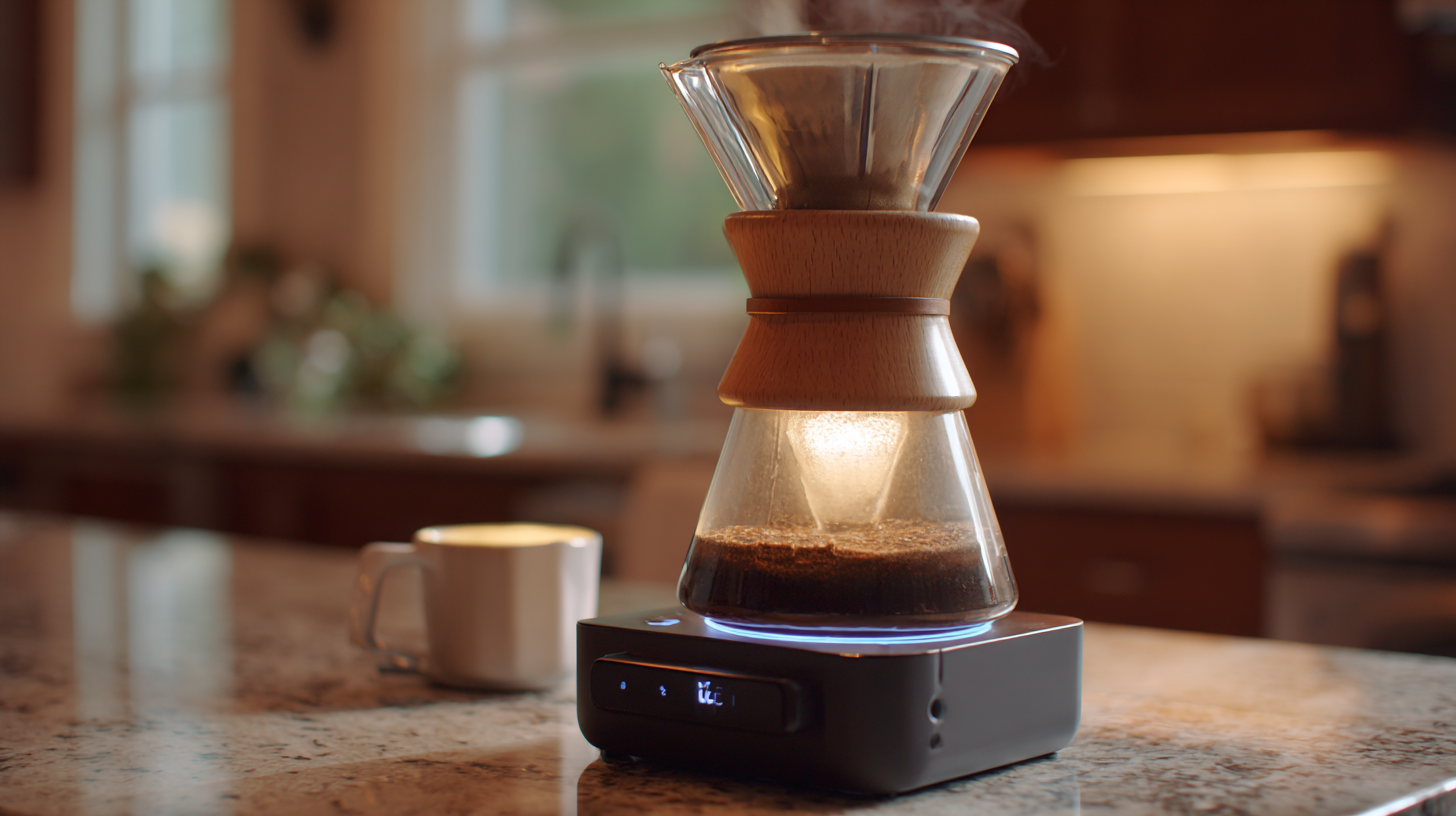In recent years, the coffee industry has witnessed a significant transformation driven by advancing technology and evolving consumer preferences. As reported by the National Coffee Association (NCA), over 60% of Americans now consume coffee daily, highlighting the beverage's ingrained position in our daily routines. Amid this rising demand, Coffee Robots have emerged as a game-changing solution, streamlining the brewing process and elevating the coffee experience. With their ability to deliver a consistently high-quality cup, these automated machines are not only optimizing brewing efficiency but also catering to the intricate tastes of today’s coffee enthusiasts.
A report from MarketsandMarkets suggests that the global coffee machine market is expected to reach $11.4 billion by 2025, driven in part by the increasing adoption of smart appliances. Coffee Robots are at the forefront of this trend, often equipped with artificial intelligence and IoT capabilities, enhancing user interaction and personalization. Consumers can now enjoy barista-quality coffee at home, bridging the gap between convenience and craftsmanship. As technology continues to evolve, it will undoubtedly play a pivotal role in shaping our morning rituals, ushering in an era where Coffee Robots redefine how we brew and enjoy our favorite beverage.

The rise of coffee robots marks a significant shift in the way we perceive and engage with our morning brews. According to a recent report by Statista, the global coffee market is projected to reach approximately $102 billion by 2025, highlighting a growing consumer interest in coffee innovation. As the demand for quality and convenience increases, coffee robots have emerged as a solution that combines advanced technology with gourmet coffee experience. These machines not only save time for busy individuals but also replicate the craftsmanship of baristas, delivering consistent, high-quality beverages with precision.
Moreover, a survey conducted by the National Coffee Association revealed that 79% of Americans consume coffee, and among them, a considerable number are willing to invest in automated systems that enhance their brewing experience. With features like adjustable strength settings, personalized recipes, and even smartphone connectivity, coffee robots cater to the preferences of modern consumers. This technological evolution not only streamlines the brewing process but also enriches the overall coffee experience, making it accessible and enjoyable for coffee lovers everywhere. As we delve further into the coffee technology landscape, it's clear that these robots are set to redefine our morning routines, cementing their place in the heart of coffee culture.
The rise of coffee robots is fundamentally transforming the way we brew our morning beverages, offering significant advantages in efficiency and customization. With the global coffee machine market projected to reach approximately $7.05 billion in 2023, and anticipated to grow at a compound annual growth rate (CAGR) of 5.10% from 2024 to 2031, automated brewing technology is becoming increasingly prevalent in both homes and cafes. These advanced coffee machines not only streamline the brewing process but also enable users to craft their perfect cup with precision, adjusting parameters such as temperature and brew time at the touch of a button.
Moreover, with major investments in coffee production infrastructure, such as a recent development in Xiamen, the industry is poised for enhanced supply chain efficiency. This new facility is set to have an annual roasting capacity of 55,000 tons, illustrating the growing demand for high-quality coffee. As companies leverage automation alongside innovative roasting practices, consumers are benefiting from both consistency and improved flavor profiles in their coffee. The integration of technology in coffee preparation signifies a notable shift, fostering a more personalized and efficient coffee experience that caters to the evolving preferences of coffee lovers worldwide.
This chart illustrates the time required for two different methods of coffee brewing: manual brewing takes approximately 10 minutes, whereas automated brewing significantly reduces this time to around 5 minutes. The adoption of coffee robots can streamline the morning routine, making it more efficient.
The rise of coffee robots has dramatically transformed the landscape of morning rituals, enhancing not only convenience but also the quality of the brew. According to a report from the International Coffee Organization, the global coffee machine market is projected to reach $7 billion by 2025, driven in part by automation and smart technology. This shift reflects a growing consumer demand for machines that offer customized brewing options, allowing for a tailored coffee experience right at home.
Among the top contenders in this burgeoning market, features such as smartphone connectivity, built-in grinders, and milk frothers set these coffee robots apart. For instance, machines like the Breville Oracle Touch allow users to select the grind size, adjust brew strength, and control milk temperature, all through a user-friendly touchscreen interface. Additionally, research from Statista indicates that smart home devices, including coffee robots, are expected to contribute significantly to energy efficiency and ease of use, as busy households increasingly look for ways to simplify their morning routines. With technology enhancing the brewing process, coffee robots are not just a trend; they represent a fundamental shift in how we engage with one of our most cherished daily rituals.

Integrating coffee robots into your morning routine can streamline your mornings and enhance the brewing experience. As reported, Singapore's first robot barista offers a unique lifestyle experience, demonstrating how technology blends seamlessly with daily habits. Studies indicate that automation in food and beverage preparation can save users an average of 10-20 minutes each morning. This is particularly beneficial for those with packed schedules who still value quality coffee to kickstart their day.
To effectively incorporate coffee robots into your routine, it's essential to find a model that aligns with your brewing preferences. Many of these robots boast features such as customizable coffee strength and temperature settings, catering to a wide array of tastes. Additionally, a survey found that about 65% of consumers are more likely to engage with brands that employ AI-driven personalization. By choosing a coffee robot that can adapt to your specific needs, you not only simplify your routine but also enjoy a more tailored beverage experience, enhancing your overall satisfaction each morning.

As the coffee industry continues to evolve, the integration of robotics into our morning routines promises to significantly alter how we brew our favorite beverage. According to a report by MarketsandMarkets, the coffee robotics market is projected to reach $1.5 billion by 2025, growing at a CAGR of 13.5%. This surge is driven by advancements in automation technology and a growing demand for quality and convenience in coffee preparation. Coffee robots not only enhance the brewing process but also ensure consistency and precision, allowing coffee lovers to enjoy barista-quality drinks from the comfort of their homes.
Looking ahead, the future of coffee robotics lies in personalized brewing experiences. With the advent of artificial intelligence and machine learning, these robots are set to learn individual preferences, adjusting parameters such as brew strength and temperature to match personal tastes. According to a recent study by the Specialty Coffee Association, 65% of consumers expressed interest in custom coffee experiences. As coffee robots become more intelligent and user-friendly, we can expect to see a rise in smart coffee machines that connect to mobile apps, providing a seamless and interactive brewing experience tailored to the user's liking. The fusion of technology and coffee is indeed brewing a revolution in our daily rituals.
| Feature | Description | Advantages | Future Trends |
|---|---|---|---|
| Automated Brewing | Robots can brew coffee while maintaining consistency and precision. | Improved quality control and reduced human error. | Integration with smart home devices for personalized brewing schedules. |
| Mobile Coffee Stations | Robotic coffee carts that serve coffee at events or offices. | Convenience and the ability to serve large groups efficiently. | Increased automation in event catering services. |
| Robotic Pour Over | Robots mimic the artisanal pour-over process. | Consistency in taste with a hand-crafted approach. | Adoption of AI to customize brewing methods based on user preferences. |
| Sustainable Practices | Robots can manage the entire coffee lifecycle efficiently. | Reduction of waste and better resource management. | Robots utilizing renewable energy sources for operation. |
| Data-Driven Personalization | Using data analytics to adjust flavors and brewing times. | Enhanced customer experience with tailored coffee. | The rise of subscription services based on user patterns. |